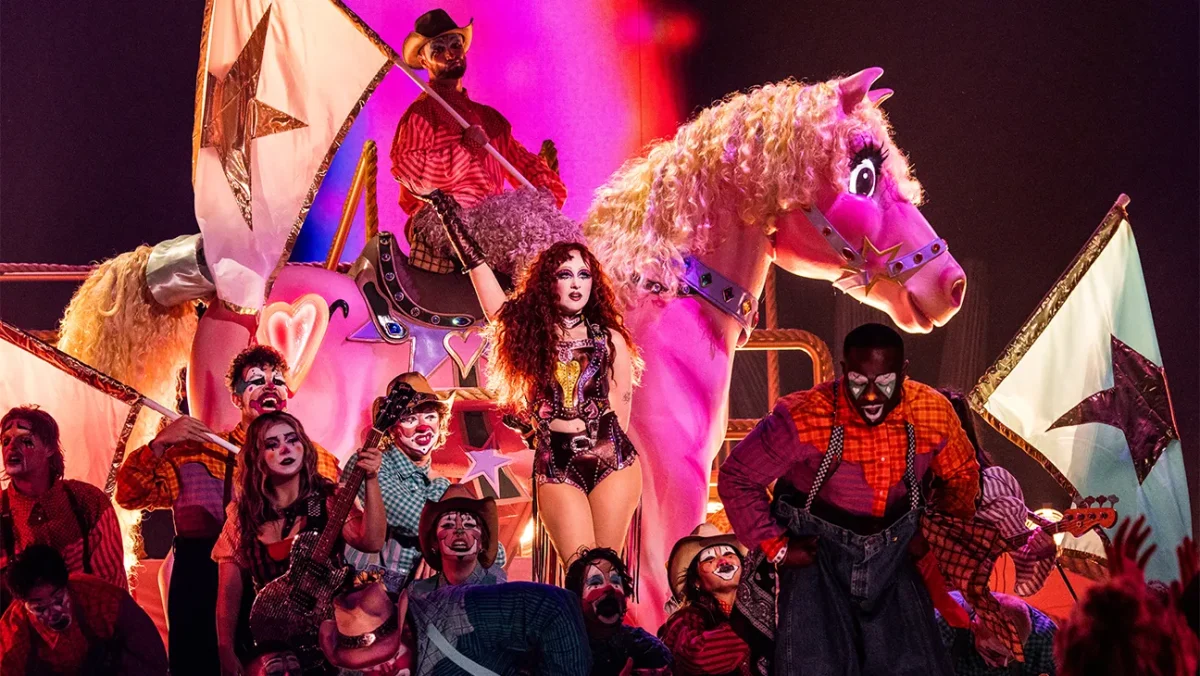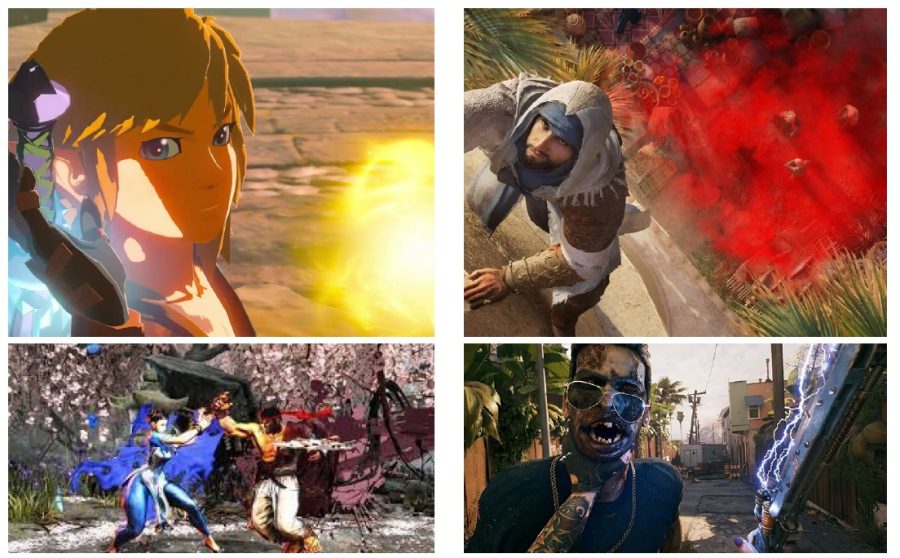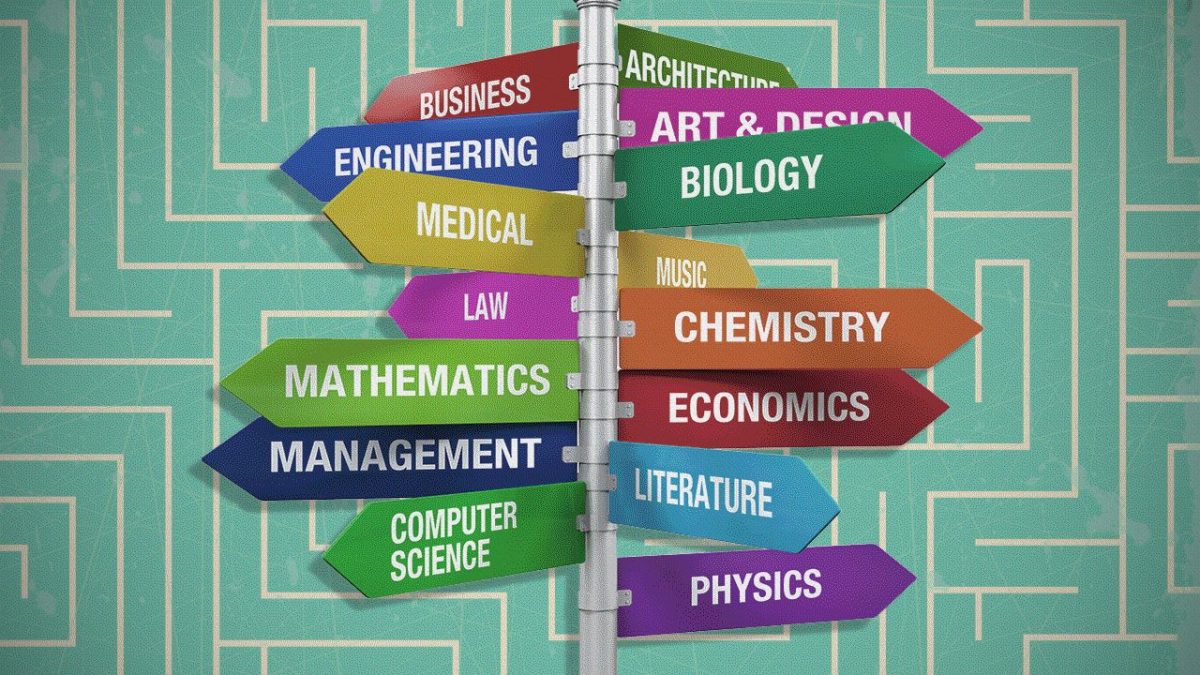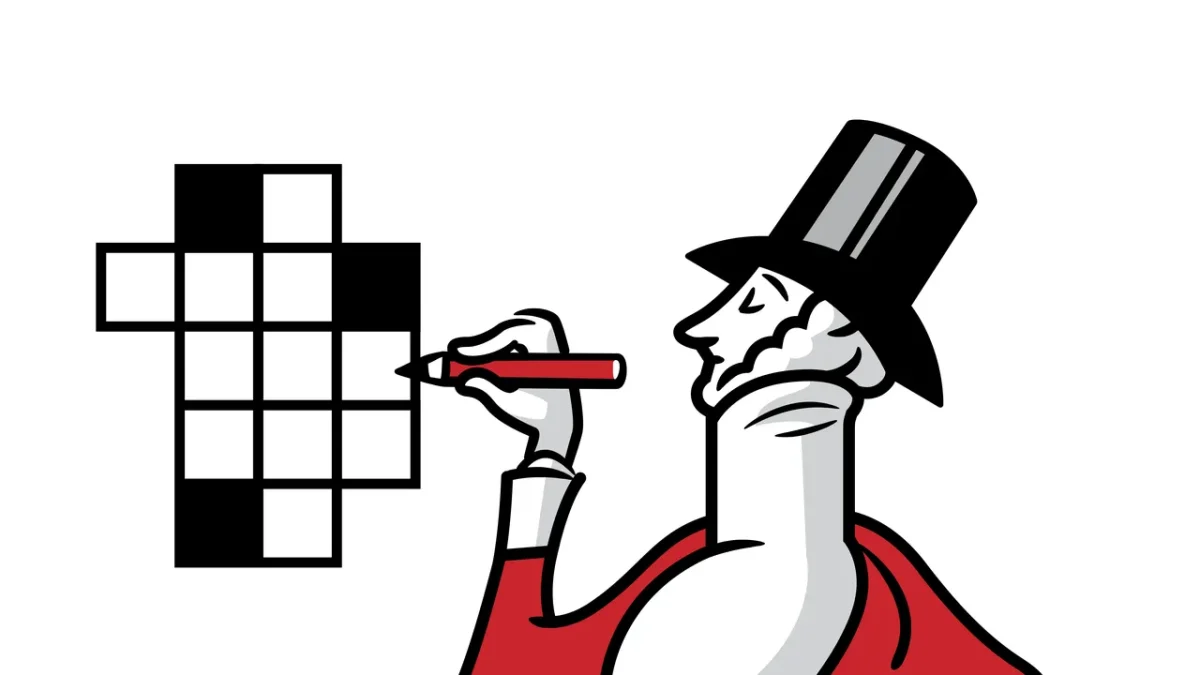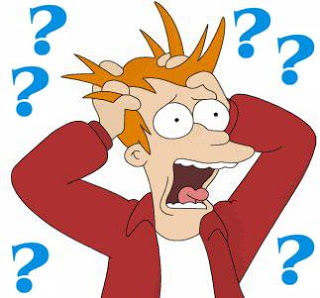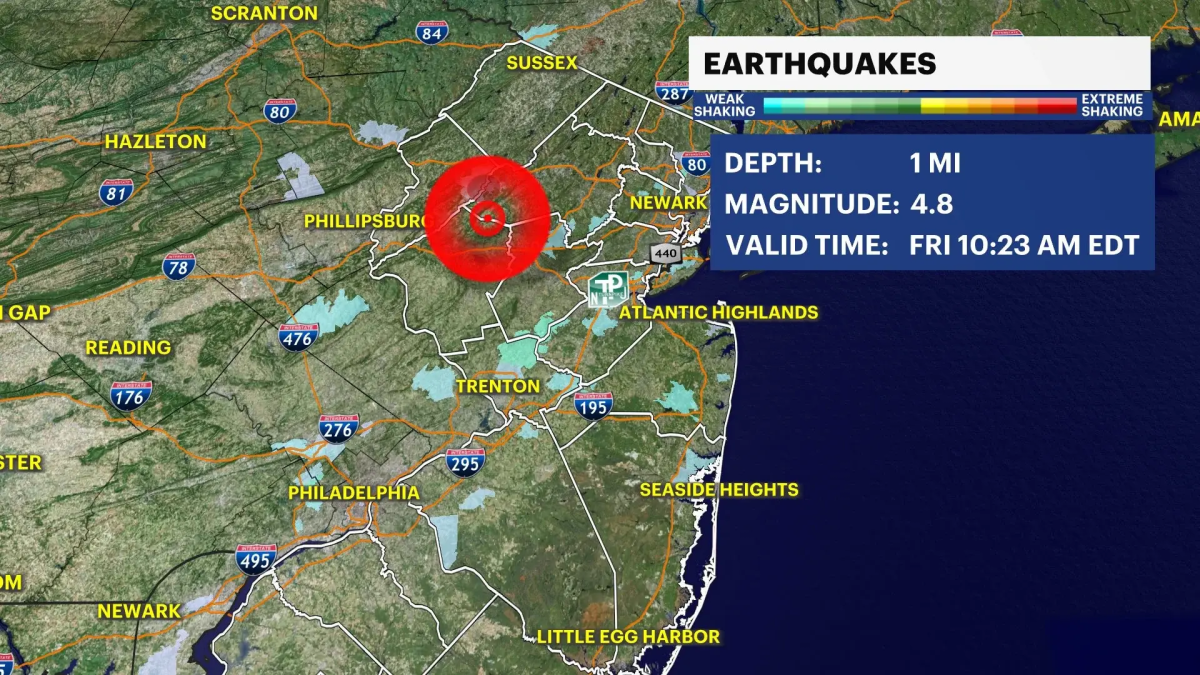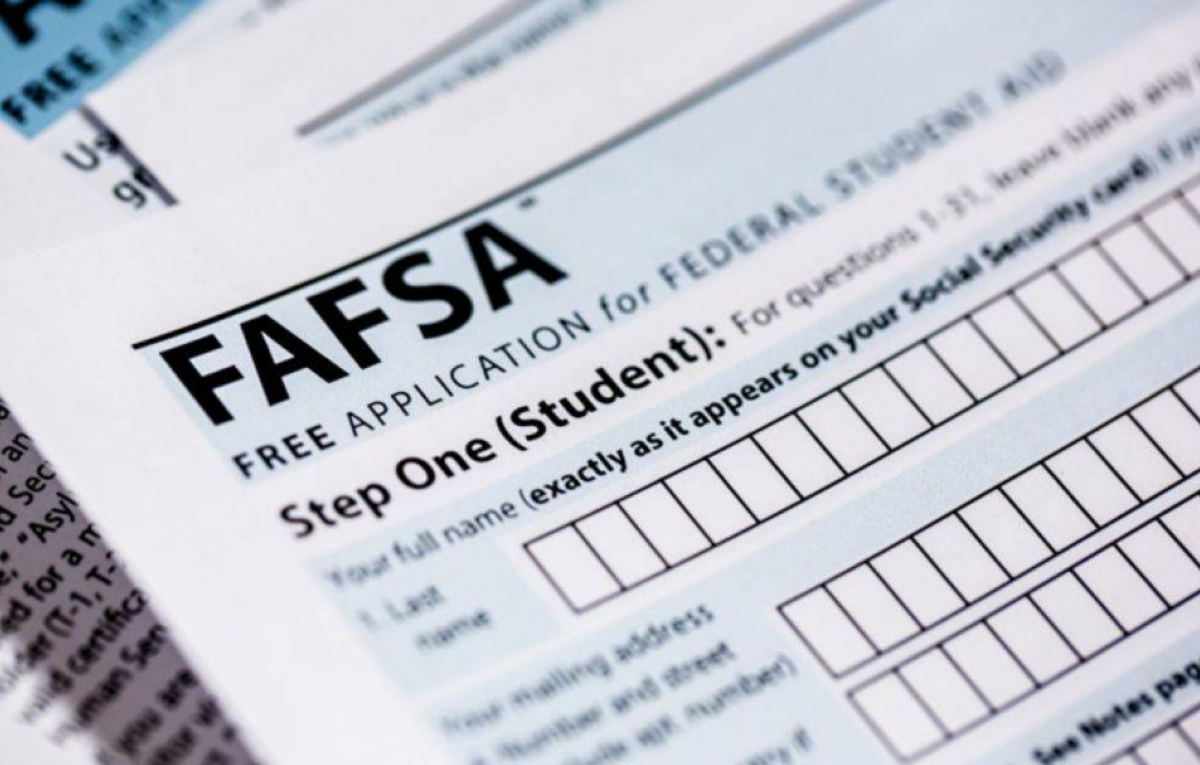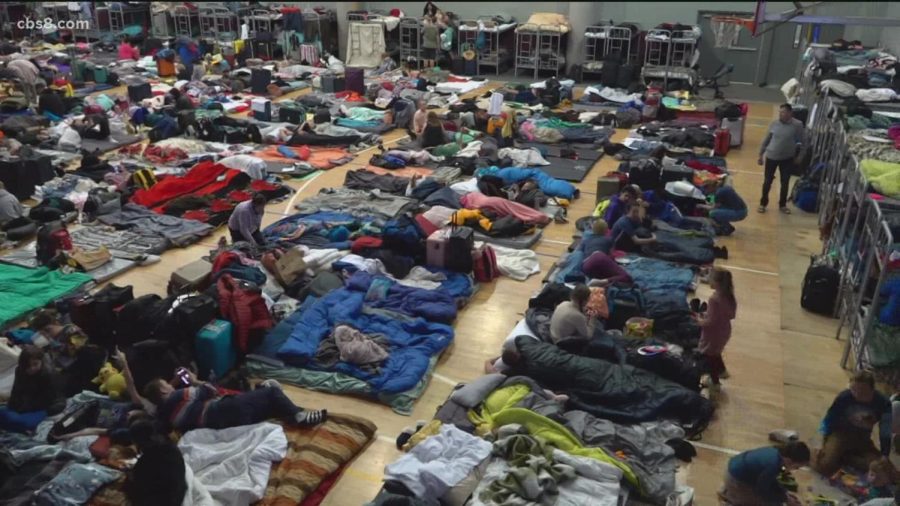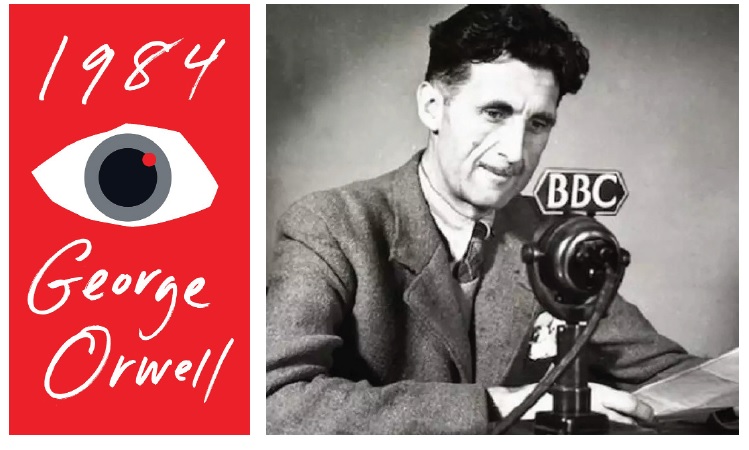Are We Literally Living in “1984” or Did You Just Not Read the Book?
An examination of Orwell’s masterpiece and if we are really living in those Orwellian times
March 8, 2021
A lot has happened in 2021. A riot stormed the Capitol, a new president was inaugurated, a stock market crash changed the trajectory of Wall Street. However, one phenomenon has taken social media by storm: the “Literally 1984” phenomenon. Participants take any policy remotely authoritarian that is proposed by the opposing political faction and say that we are “literally living in 1984.” How accurate is this claim? Well, as someone who’s read the book several times, let’s dig in.
Many people have opinions concerning Orwell and his writing, having never read his literature or studied his life. The most common opinion is that Orwell was anti-communist and by nature, right-wing. However, nothing could be farther from the truth. Orwell (named Eric Blair at birth) identified himself as a Democratic Socialist, though his ideology aligns more with that of a Social Democrat. Blair simply detested the bastardization of Marxist theory to support totalitarian regimes, hence Animal Farm.
The misunderstanding of Orwell continues into 1984, a book which has come to represent the modern totalitarian state. In the text, all party members of Airstrip-One are closely monitored through telescreens and are encouraged to report their neighbors to the government of Oceania, the governing state. The regiment of daily life is strictly maintained. So on the surface, this comparison seems to make sense.
But let’s delve deeper: is the world of 1984 really just about totalitarianism? Ironically, to answer this question we must look outside the knowledge contained just within the book and study another, lesser known piece: “Politics and the English Language,” an essay written by Orwell. In “Politics,” Orwell argues that language itself is being devalued at a structural level to manipulate the general public into forming opinions. He concluded that pretentious diction, inciteful words, false modifiers, and dangling prepositions, among other literary traps have become commonplace in modern diction. Unintentionally, I’m committing all his various crimes in this piece– it’s so common it’s impossible not to.
Orwell was deeply concerned with the use of language to meet political needs. For example, he spoke against the words frequently in Marxist literature such as “bourgeoisie,” “proletariat,” and others. Master manipulators will often specifically employ words they know have lost their meaning to cow their followers into submission. Knowing this context, let’s re-examine 1984.
Now, we can see that 1984 is more than just simple totalitarianism. The motto says it all: “War is peace, freedom is slavery, ignorance is strength.” The state in the book is engaged in a deliberate attempt to undermine reality through language, and thus, seize control of the minds of their subjects.
The government of Oceania is engaged in an effort to control language in its entirety, and thus history. Our protagonist, Winston, engages in attempts to rewrite history to bend it to the will of the state– erasing and changing texts at will. The government regularly engages in tactics designed to undermine reality through aggressive propaganda like falsifying statistics and constantly altering the state of affairs of warfare. Ingsoc, the ruling party, regularly engages in “doublespeak,” a language practice that describes the opposite of reality, thus obscuring and distorting the meaning of words (see the motto). The government is even attempting to alter language itself through a new form of communication called “newspeak,” where scholars in the Ministry of Truth (another example of doublespeak) attempt to breed out rebellious or complex words which encourage independent thought (“bad” becomes “ungood”).
The Party seeks to maintain control of their subjects down to their very minds. Orwell sees language as the key to the mind. Therefore, the Party seeks to control language to the point where when they say that “2+2=5,” their subjects believe them. This example is the key to 1984: not simply totalitarianism but complete linguistic control.
So, are we “literally living in 1984?”
I’ll break from literary experts and say yes, with Twitter being one such symptom. But the problem runs deeper. We already regularly see examples of doublespeak (the naming of the “Department of Defense” for an agency which regularly engages in oversea wars and the “National Security Apparatus” for an organization who spies on its own citizens). Our media and social platforms seek to control our very thoughts through the manipulation of facts to fit an agenda. Governments and people deliberately lie to our faces every day, and not only do we let them, but we believe them. The only barrier holding us back from such extensive control of language is the battle between political factions. Each and every party engages in Orwellian tactics to reach their agenda. And this is the true lesson of this piece. Hallmarks of 1984 are everywhere around us. So stay vigilant and be watchful– question anything and everything.




























































